Dr. Carla Evans is a Senior Associate at the National Center for the Improvement of Educational Assessment (Center for Assessment). Carla supports states in designing and implementing assessment and accountability reforms. For example, she is actively engaged with projects attempting to bridge the gap between the classroom and the statehouse by designing and implementing balanced assessment systems. Her work includes leading statewide assessment system reviews, assessment literacy initiatives, and performance assessment design and implementation activities. Carla also supports states with accountability design and reforms, including working with task forces to define and operationalize values into the accountability system design and implementation.
Carla’s research focuses on the impacts and implementation of assessment and accountability policies on teaching and learning. She is especially interested in policy research related to balanced assessment systems, culturally responsive assessment, performance-based assessments, AI in classroom assessment, instructionally useful assessment, and assessment literacy.
Carla recently published a book with Scott Marion, Understanding Instructionally Useful Assessment, that details the assessment design and implementation features necessary to make it more likely that classroom teachers can use the information from an assessment to change their instruction the next day or within a short amount of time. Carla also co-edited an NCME volume with Catherine Taylor that will be published by April 2025, Culturally Responsive Assessment in Classrooms and Large-Scale Contexts: Theory, Research and Practice.
Carla has published numerous articles in peer-reviewed journals and regularly presents her research at the American Educational Research Association (AERA), National Council for Measurement in Education (NCME), and the National Conference on Student Assessment (NCSA). Carla is also a frequent blogger on the Center's website and has created a set of open-source Classroom Assessment Literacy modules as well as resources on assessing 21st century skills.
Carla received a Ph.D. from the University of New Hampshire with a concentration in Assessment, Evaluation, and Policy. She was awarded numerous honors, including AERA Division H’s Outstanding Dissertation Award, UNH Dissertation Year Fellowship, UNH Graduate Research Assistantships, and UNH Education Department Outstanding Graduate Student Paper Award. Carla serves on AERA’s Classroom Assessment SIG leadership team and as an adjunct professor of education at the University of New Hampshire. Carla began her career as an elementary classroom teacher for almost a decade.
Recent and Relevant Publications
Evans, C.M. & Marion, S.F. (2024). Understanding Instructionally Useful Assessment. Routledge.
Evans, C.M. & Taylor, C. (Eds., in press) Culturally Responsive Assessment in Classrooms and Large-Scale Contexts: Theory, Research, and Practice (NCME Edited Volume). Routledge.
Evans, C. M. (2023). Applying a culturally responsive pedagogical framework to design and evaluate classroom performance-based assessments in Hawai‘i. Applied Measurement in Education.
Stone, A. & Evans, C. M. (2023). Keeping up the PACE: Evaluating grade 8 student achievement outcomes for New Hampshire’s innovative assessment system. Applied Measurement in Education.
Evans, C. M. (2023). Applying a Contrasting Groups Standard Setting Methodology to a Large-Scale Performance Assessment Program Used for Accountability. Practical Assessment, Research, and Evaluation, 28(1).
Dadey, N., Evans, C. M., & Lorié, W. (2023). Through-year assessment: Ten key considerations. The National Center for the Improvement of Educational Assessment.
Wellberg, S. & Evans, C. M. (2022). Assumptions Underlying Performance Assessment Reforms Intended to Improve Instructional Practices: A Research-Based Framework. Practical Assessment, Research, and Evaluation, 27(23).
Evans, C. M., Thompson, J., & Landl, E. (2020). Making sense of K-12 competency-based education: A systematic literature review of implementation and outcomes research from 2000 to 2019. Journal of Competency-Based Education, 5(4).
Evans, C. M., Graham, S., & Lefebvre, M. (2019). Exploring K-12 competency-based education implementation in the Northeast states. NASSP Bulletin.
Evans, C.M.(2019). Effects of New Hampshire’s innovative assessment and accountability system on student achievement outcomes after 3 years. Educational Policy Analysis Archives
Evans, C.M., & Lyons, S. (2017). Comparability in balanced assessment systems for state accountability. Educational Measurement: Issues and Practice. Educational Measurement: Issues and Practice.
Blog Posts Authored by Carla Evans

2021 Summer Internships: The Future Is Now
Center Staff and Interns Look Toward the Future of Educational Assessment and Accountability As it appears the country is finally turning the corner on the pandemic, we are excited at […]
Read More
Implementing an Innovative State Assessment System While We’re Still Building It
Houston, I Think We Might Have a Problem One definition of insanity is doing the same thing over and over again, and yet expecting different results. Recently, I have been […]
Read More
Classroom Assessment Literacy Is Needed Now More Than Ever
Leveraging a Formative Assessment Approach to Inform Student Learning Progress and Teaching Practices in a Post-Pandemic Education Environment The pandemic has surfaced disparities among students with respect to equitable educational […]
Read More
Practical Advice for Adapting Formative Assessment Practices to Remote Learning Contexts
Combining Good Pedagogy and Technology to Conduct Assessment Informs Future Instruction In a previous post, we discussed what is the same and what is different about the formative assessment process in […]
Read More
Keeping up the PACE
Evaluating Grade 8 Student Achievement Outcomes for the NH PACE Program, an Innovative Assessment System This is the third in a series of posts by our 2020 summer interns and their mentors […]
Read More
A Deep Dive into Summative Classroom Assessment in a Remote or Hybrid Learning Environment (Part 2)
What’s the Same and What’s Different about Classroom Assessment in 2020-2021? Those responsible for summative classroom assessment in 2020-2021 face a number of daunting challenges, not the least of which […]
Read More
A Deep Dive into Formative Assessment in a Remote or Hybrid Learning Environment (Part 1)
What’s the Same and What’s Different about Classroom Assessment in 2020-2021? As school restarts this fall, many teachers and students are facing different learning environments than the typical back-to-school realities […]
Read More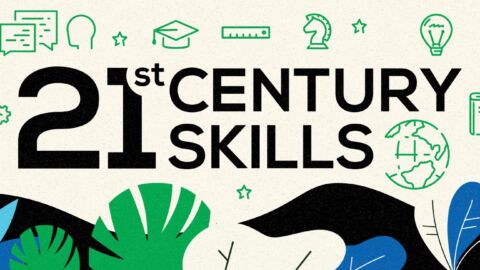
Teaching & Assessing 21st Century Skills: Guidance for Educators: Best Practices Related to Classroom Assessment Design and Grading & Reporting for 21st Century Skills
One in a series exploring research and best practices on defining, teaching and assessing 21st century skills.
Read More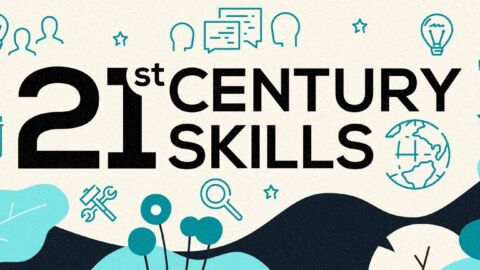
Teaching & Assessing 21st Century Skills: Key Measurement & Assessment Considerations
One in a series exploring research and best practices on defining, teaching and assessing 21st century skills.
Read More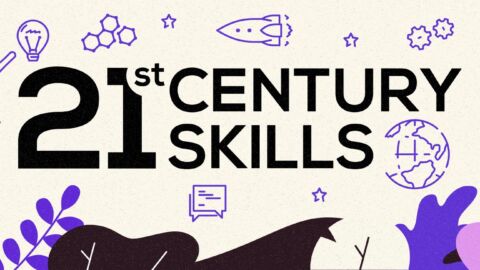
Teaching & Assessing 21st Century Skills: A Focus on Critical Thinking
One in a series exploring research and best practices on defining, teaching and assessing 21st century skills.
Read More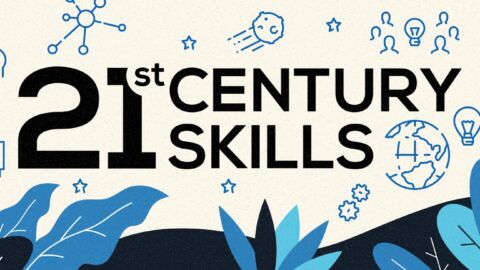
Teaching & Assessing 21st Century Skills: A Focus on Collaboration
One in a series exploring research and best practices on defining, teaching and assessing 21st century skills.
Read More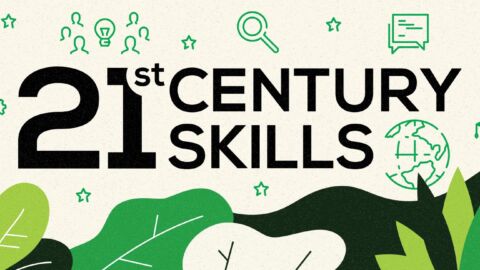
Teaching & Assessing 21st Century Skills
The first in a series exploring research and best practices on defining, teaching and assessing 21st century skills.
Read More
2020 Summer Internships: A Little More Certainty in an Uncertain Future
Center Staff and Interns Will Address Pressing Issues in Educational Assessment and Accountability Although so much about the future seems uncertain, we are excited this month to bring a little […]
Read More
Stop Searching for the Holy Grail: Responding to COVID-19 Achievement Gaps
How Educators Should Address Achievement Gaps Exacerbated by the COVID-19 Pandemic Since school closures and remote learning became the norm, I have received emails from school and district leaders relevant […]
Read More
School Improvement is Hard! How Can Educational Assessment and Accountability Systems Help?
Building a Better Theory of Action to Enhance the Utility of Assessment and Accountability Systems How do schools improve? More importantly, how can school improvement be sustained over time and […]
Read More
What Do I Need to Know About Competency-Based Grading? (Part 3)
Getting Clear about Best Practices–Competency-based Grading Done Right This post is the last in my three-part series on competency-based grading. In Part 1, I describe the key similarities and differences between […]
Read More
What Do I Need to Know About Competency-Based Grading? (Part 2)
Getting Beyond the Hype–Potential Problems with Competency-Based Grading This post is Part 2 of a three-part series on competency-based grading. Part 1 described the key similarities and differences between traditional, standards-based, and […]
Read More
What Do I Need to Know About Competency-Based Grading? (Part 1)
Getting Clear about Definitions–Similarities and Differences Among Traditional-, Standards-Based, and Competency-Based Grading Practices This is the first in a three-part series on competency-based grading. I was motivated to write this […]
Read More